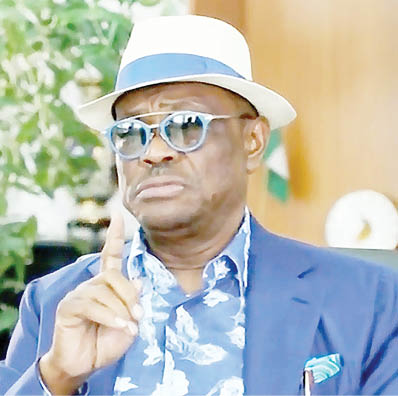
Few days after David Ayodele arrived in Ebonyi State in October 2022 to continue his undergraduate programme in Criminology and Security Studies at Alex Ekwueme University (AE FUNAI); he bore testimony to what the residents called Ikwo Sun. He had been held down by the 8-months strike by the Academic Staff Union of Universities (ASUU).
Ayodele, being a native of Ifaki in Ekiti State, is a registered voter at Unit 6,Ward 2 of the same local government.
“I struggled to register and get my PVC so I can vote for my choice candidate, but it’s unfortunate I won’t vote because my school, AE FUNAI have slanted 20th-24th February 2023 for mid-semester exams”
“Traveling from Ebonyi will take 8hrs 32 minutes which means I will not make it to Ekiti to exercise my political rights, I feel the pain, ASUU would have waited till after elections” he recounted.

The independent National Electoral Commission, INEC, had slated the 2023 Nigerian presidential election to be held on 25 February in all 36 states.Eligible voters are meant to vote in the polling units they registered.
Millions of Nigerians, who have never registered, made an effort to get registered by the INEC through the continuous voters’ registration exercise, which ended on July 31. Although,millions of Nigerians are still unregistered due to the decision of INEC to end the exercise.
According to INEC, a total of 12,298,944 Nigerians successfully completed the registration as new voters. However, the total of 2,780,756 (22.6%) are ineligible registrants and invalidated from the record resulting from double/multiple registration, under aged persons and outrightly fake registrations that fail to meet the commissions business rules.
The Chairman of the electoral umpire, Professor Mahmood Yakubu days ago at the third quarterly meeting with political parties for the year 2022 held in Abuja revealed that 7.2 million new voters constituting 76.5% are young people between 18-34 years while there is a slightly higher number of female 4.8 million or 50.82% than male 4.6 million or 49.18% voters.

However, In terms of occupation, 3.8 million 40.8% are students.
This article tells you how the reopening of Universities Nationwide will disenfranchise undergraduates, youths and even the lecturers in the forthcoming General election.
UNCOLLECTED PVCs
Many of the students and youths are yet to collect their Permanent Voters Cards (PVCs) in their respective polling units/area of registration.
ASUU called off their month-long industrial action, urging members to go back to the classroom, and a larger number of the students who are set returned to their various campuses to continue with Academic activities.
Do you know that university campuses are situated in different states other than areas of PVC registration which cannot be collected in proxy?
UNIVERSITY ACADEMIC CALENDAR/ INEC ELECTION CALENDAR.
Studies conducted on the most university Academic calendar shows that some of the schools will be in a serious academic period within the period of the 2023 elections. though the Federal Government might declare a public holiday to allow for the conduct of the election, it is envisaged not to be convenient for students to travel to and fro school in a couple of days.
The school calendar will disenfranchise many because nobody is ready to forfeit exams or tests and travel far distances to vote.
FINANCIAL CONSTRAINTS
Parents upon the announcement of reopening of schools have been scampering to provide for their children and wards school fees, accommodation and feeding. No parent will gladly accept for their children to come back home for the election, considering how long wards have stayed at home and they just resumed back to school due to the strike. That itself came with a huge financial burden of Transportation, feeding and school, fees and other expenses. The Possibility of students coming back to their respective polling unit to cast their vote is seen as a mirage.
INSECURITY/FEAR OF ACCIDENT
In recent times, insecurity has dominated discourse across the country, as terrorism, banditry and kidnapping heightened in the north-east,north-west and north-central; separatist violence and crude oil theft in the south-east and south-south; as well as cultism, armed robbery and sundry crimes in the south-west. The worrisome state of the road, kidnapping, arm robbery, banditry, and several other road ills is not one any student or parent wants to experience especially during political season.
How about the risk of road travels where a student that will be going back to school this October, will be traveling back for a short Christmas break, then return to school in January, then travel again for voting purpose before returning back again to school that will be a very big distraction for students especially looking at how long they have waited at home.
Before now the youth don’t take these political issues seriously now that they have indicated interest, it is clashing with their studies. Not all will be willing to sacrifice all of these aforementioned factors after their horrible experience at home for a whole academic year- many will really be disenfranchised.







